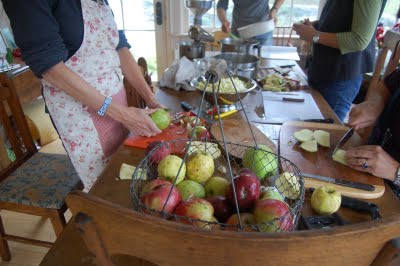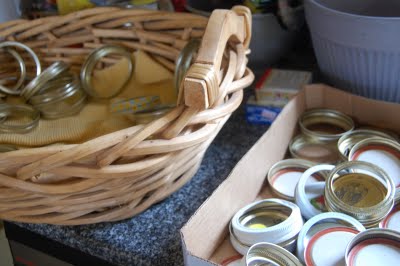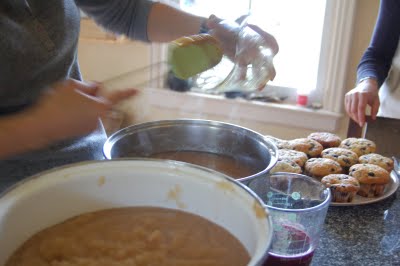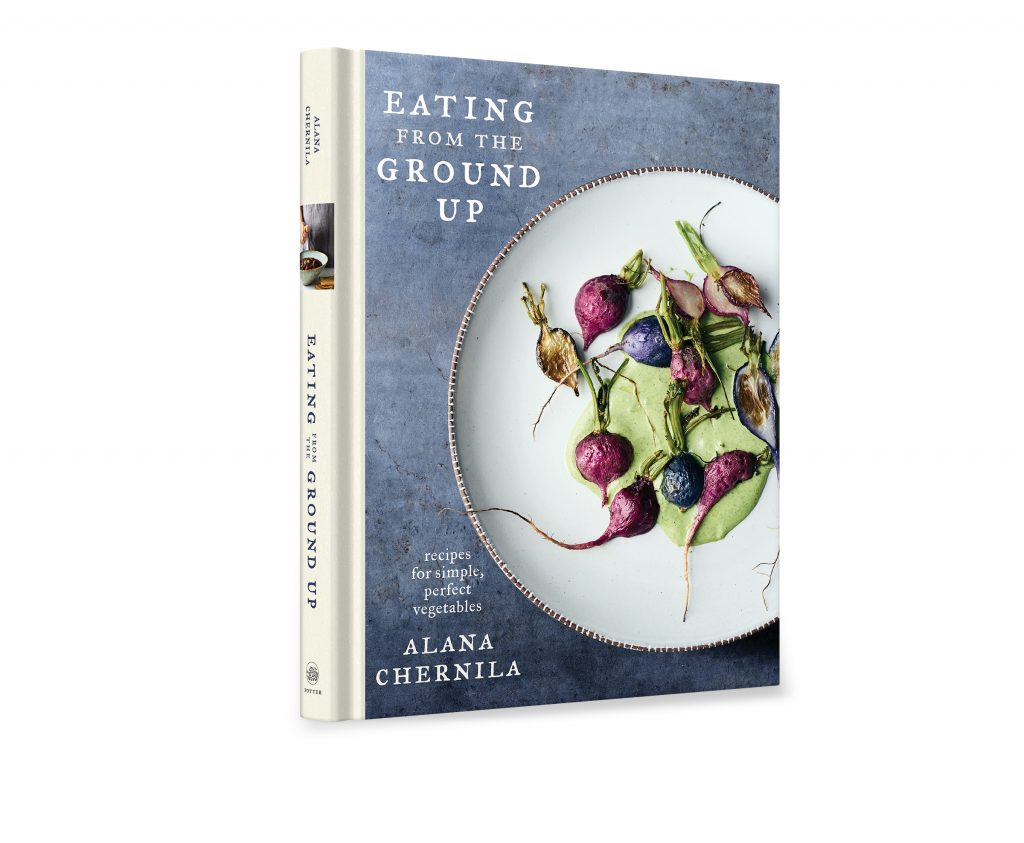
Canning is not a solitary process. In fact, I think that two is even too few for a morning of canning. I think three is better, or four, or ten. The first time I canned I was with just one friend, and we cried together over the stove while the temperature of the August kitchen escalated past 120 degrees and the kids watched Mary Poppins one more time. I think more friends in the kitchen would have been a good thing.
So I’ve learned to can in big safe groups. And I’ve learned to can in the fall only. And slowly, I’m getting my canning legs. I think some day I’ll be able to can alone. But I’m not going to push it.

Bringing old culture back into the kitchen is all the rage, I know. I just read about a series of workshops that fully encapsulated all of the trends. Make your own sour dough starter! Dig your own root cellar! Thresh your own wheat!
But you know, sometimes the trends have a point. For many reasons that we could go into at great length, the last half a century or so has eaten up the work that has fed people for a very long time. It turns out that some of the new methods of feeding ourselves are not quite as good as we thought. And canning? Quite simply, it’s a cheap and fairly easy way to feed ourselves through the winter with the food that grew in the summer. Makes some sense, when you think about it.
That said, I still only can in groups. So when a friend of mine invited me over for an apple extravaganza, I was absolutely there. Apple sauce, apple butter, apple chutney; there were jars covering every surface of her kitchen. But I haven’t even told you the best part. It turns out that last year, she burned her applesauce and it blew her mind. Afraid that she wouldn’t be able to recreate the effect, she decided to add caramel to the applesauce this year. Caramel! Totally brilliant. She is quite generous, this friend of mine, because she said that I could share her secret with you. So now you’ve got it. Invite some friends over. Get yourself a caramel applesauce party. It will keep you going all winter.

There are a lot of different applesauce recipes out there, and the truth is, I haven’t found a bad one yet. Here’s a guideline:
When you find yourself in the possession of a large amount of apples, this is a good thing to do with them. Alternately, you can make a small batch and eat it for lunch.
Either way, cut the apples into chunks and core them. You can leave the skins on. Put them into a large pot with few inches of water. Bring to a boil, then cover and reduce heat, cooking until the apples are tender. From here, I offer you two options:
If you are lazy, making a little batch, or any combination of the two, you can use a hand blender here. Stick it in the pot, and blend away.
Or, if you’re really going for it, you’re going to have to strain. A foley food mill will do the trick, or if you find a friend with a squeezo strainer, count yourself blessed and hold that friendship sacred. If you are making a small batch, you can also patiently push your applesauce through a sieve. This will drive you to insanity but your applesauce will be very smooth.
Once you have sauced your apples, return them to the pot. You can add cinnamon or lemon, or in this case, you are adding the secret ingredient, so it’s time to get working on that caramel.
The amount of caramel that you make obviously depends on how much applesauce you are making, but start by caramelizing a cup of sugar, add a bit judge for yourself. For instructions on making dry caramel, which is much easier than it sounds, go here.
When your applesauce is spiced to your liking, you can put it in the refrigerator and eat it within a week or so. You can also freeze it, and it will come back to life quite nicely whenever you need it. Or you can really go for it and fill up your pantry with rows of lovely jars. If canning is new to you, here are some good starters. Rare are the days now when we learn how to can from our mothers. My husband claims that he learned to shave from Danny Glover in Lethal Weapon 2. Ah well, thank God for the media.
